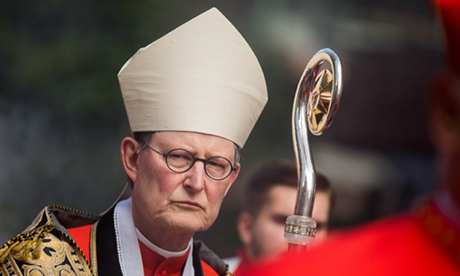Pressure is mounting on German Cardinal Woelki to act decisively on sexual abuse allegations in the archdiocese of Cologne.
The number of Catholics leaving the church, centred on Cologne, has reached a record 1,000 a month. But Protestants are also voting with their feet.
The Cologne archdiocese’s “sluggish” efforts to clear up the abuse scandal were driving Protestants out of the Church, President Manfred Rekowski of the Protestant Church in the Rhineland told the Evangelical Press Service (epd).
“There is such a thing as a joint ecumenical liability. It is stressful and I hope things will be cleared up soon”, Rekowski said.
“Anything that gives the impression of being obscure or that the Church has only little interest in clearing up abuse is fatal.”
The Cologne crisis was triggered by the refusal of Cardinal Woelki to publish the report he commissioned on how priestly sexual abuse had been handled in the archdiocese.
In December, Woekli asked Pope Francis to examine the accusations made against him. He has pledged to issue a new report on the investigation’s findings in March. The cardinal said the report will “name those responsible”.
He is also being faulted for not investigating serious allegations against a Düsseldorf priest alleged to have abused a boy of kindergarten age in the late 1970s. After he was appointed Archbishop of Cologne in 2014, he decided not to notify Rome. Woekli reasoned the priest, who has since died, was suffering from advanced dementia and the scandal would benefit nobody.
Meanwhile, Germany’s secular panel on sexualized violence against children says Cologne’s Catholic archdiocese has “severely damaged” moves to own up to its abusive past.
Cologne’s archbishopric “severely damaged” the process of owning up to decades of sexualized violence against children in its ranks. This is demanded by victims and lay Catholics, a top secular German panel found on Monday.
The Independent Inquiry into Child Sexual Abuse — a commission mandated by parliament since 2016 to probe cases across German society — decried the diocese’s own internal review, saying this must be done instead by outsiders.
